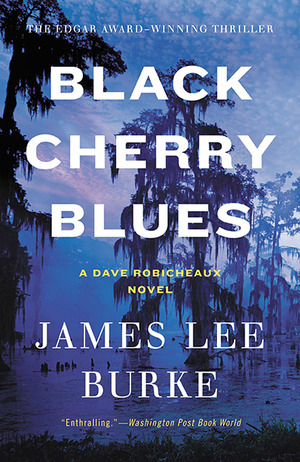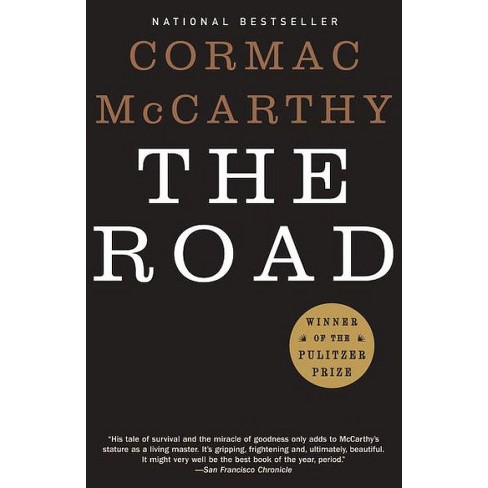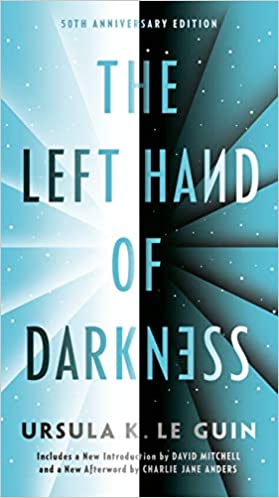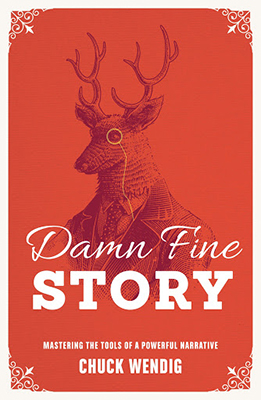Genre is Bullsh*t... kind of
 Thursday, May 13, 2021 at 03:26PM
Thursday, May 13, 2021 at 03:26PM 
Okay, okay, I chickened out on the headline - but I'm gonna go out on a writerly limb and say, yeah, the idea of genre fiction is bullshit. (Kind of)
Yes, I get it... how can an agent sell your work if it doesn't solidly sit in one genre? How can a publisher publish it? Where's a bookstore supposed to shelve it? What do you tell the person who finds out you are a writer when they ask what kind of books do you write? (Usually on a plane, or a line-up at the DMV.)
How about what you tell your mo--
Oh fuck it. It's still bullshit.
So many of the writers that I love do not fit into those boxes. James Lee Burke would sit just as well in the literary section as the crime. (Here's a post I did with the writer Mark Conard about Burke). I remember a while back schooling a bookstore employee on Burke's work, explaining it could go anywhere in the store.

And what does Cormac McCarthy write? Literary-historical-sci-fi-dystopian-crime novels it seems. There's good reason why writers like Ursula K. Le Guin got pissed when Cormac picked up a wheelbarrow full of awards for his end of the world dystopia, The Road. Just what did people think she'd been writing all those years?
”Genre, in fact, is now pretty much a function of the publisher's presentation or the author's reputation." UKG
A few more thoughts on her take on genre here.

Good writing is good writing period. And by that I mean a story that makes you read the next sentence, and then the next one, and so on... (thanks to George Saunders latest book, A Swim in a Pond in the Rain, for reminding me this. By the way, you need to buy that book.)
This good writing doesn't have to be high language, low language, pulpy language or whatever. Just tell the damn story. Hey, that could be a good writing craft book. Though, Benjamin Percy (Thrill Me) and Stephen King (On Writing) have already written that book.
It's one of the many reasons I admire Jennifer Egan. People (readers, agents, publishers, her mom?) say that she moves around in the genres. I guess so, or maybe she just writes what she wants to write.
I could riff on a lot of writers here, but as you may have guessed, this genre thing is personal.
As I've written at this blog before, when my novel Correction Line was on submission with the Big 6 (I think there were 6 then), my then agent thought the book was too literary to be called "crime" and too crime to be called "literary." This is probably why it didn't sell, though Mulholland Books thought very well of it, here is part of that response from their editor:
Many thanks for the look at Craig Terlson's CORRECTION LINE... I was very excited to dig into this and in many ways, it doesn't disappoint. Even from just the conceit itself, it's clear that Terlson is way ahead of the curve in terms of crafting an engaging premise that reaches for elevated territory and reinvents enduring archetypes of action and suspense, and the supernatural elements are on the whole extremely well-handled.
(followed by words saying how he didn't think it worked as a Mullholland title)
And then...
This is not a comment on the level of talent on display, as this is clearly quite a success on its own terms. Hopefully another editor will see the potential here, feel the connection necessary to take this further, and I may find myself regretting this decision as Terlson's writing career begins to find traction in the book marketplace. In either case, many thanks for the chance to consider, and best of luck in your search for the home Terlson's work deserves.
I think about this rejection a lot. I have other publishing and agent stories similar to this - like when a publisher told me I needed to "stay in my lane" when I talked about following up my literary novel with a crime novel, ... oh, and by the way have I told you about my slipstream novel with a time-travelling Samurai?
Lately, I feel like my work is getting a bit of traction in the marketplace. This is mostly as a crime writer, I believe - and I'm totally fine with that. The bookstore has to know where to put them after all. But at the same time it bugs the shit out of me. I don't want to be put on a shelf. "No one puts Craigy on a shelf!" Isn't that what Jennifer Gray says in that really dumb movie?

I care about craft a lot. I work my ass off to do the best I can on a book - and then an editor makes it better. If I'm doing my job (tell a damn fine story, looking at you, Chuck Wendig), then anyone should be able to enjoy it.
So where am I going with this whole rant? Am I just a whiny-bitchy-writer who's having trouble breaking out? (Maybe) But also it's a bit of a rail against the industry. I think readers are being short changed. There's a thought out there that indy press, small press, are the ones publishing the interesting books. I'm not sure that's a full blanket statement that I can endorse. Crap is being published by big and small presses. It just gets me that there is a lack of diversity in the stories being told - but maybe more importantly, that agents and publishers are not taking chances with something that seems a bit different. In other words, not taking something on that is not a guaranteed sale.
The "kind of" exists in this thread because I understand that bookselling/publishing is a business. And if you don't make the bucks you close the doors. This is why I support those big bestselling authors like Stephen King and Lee Child - their sales make it possible for publishers to keep the doors open... and give little nobodies like me a chance.
The "kind of" also exists because I know how hard the agent's job is. So, maybe I'm looking at the readers, of which I am one. I want to take more chances on unknown work, books that are trying something different, or don't easily fit into one of those slots.
Salinger said something like this,
"The definition of a writer is someone who writes. And publishing? That's just business."
As a writer, I'm just going to keep telling stories. That's what I do.
Thanks for reading - let me know what you think over on the twitter-box.



Reader Comments